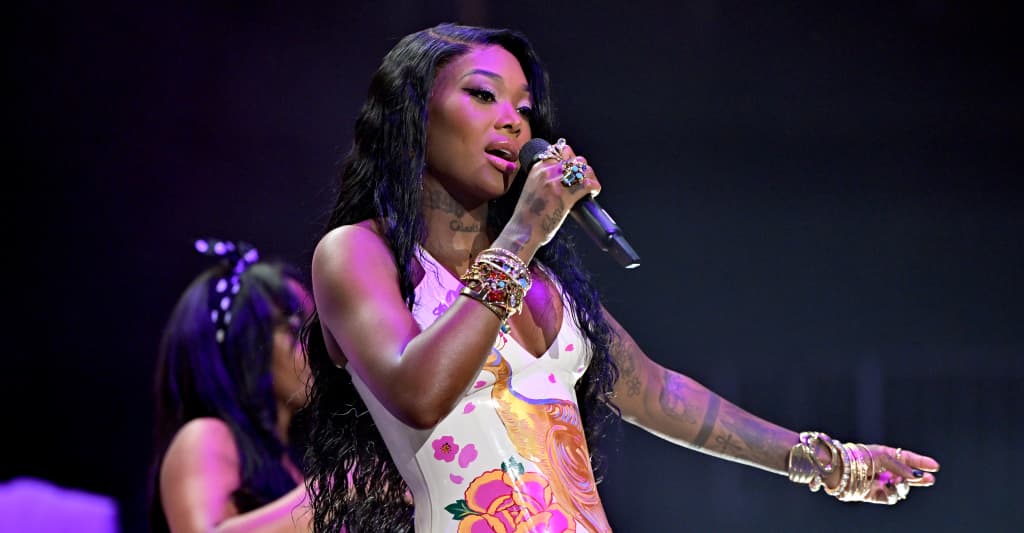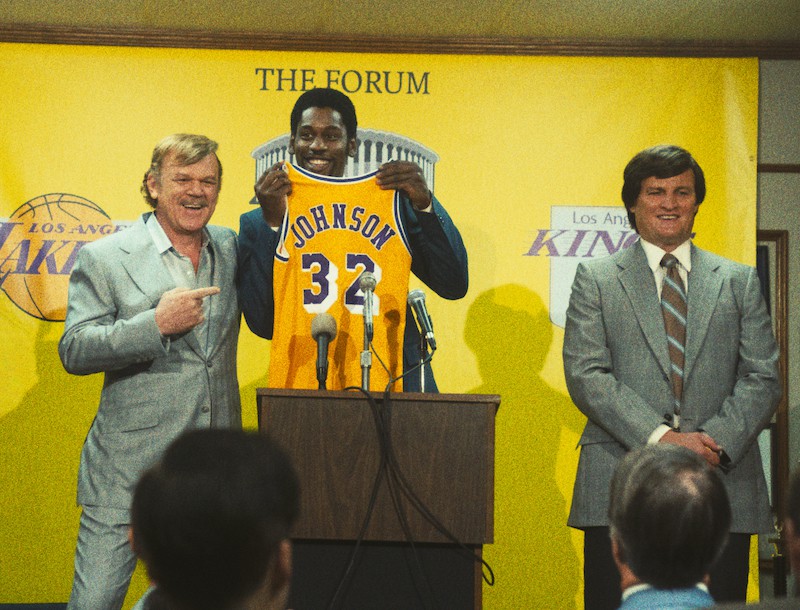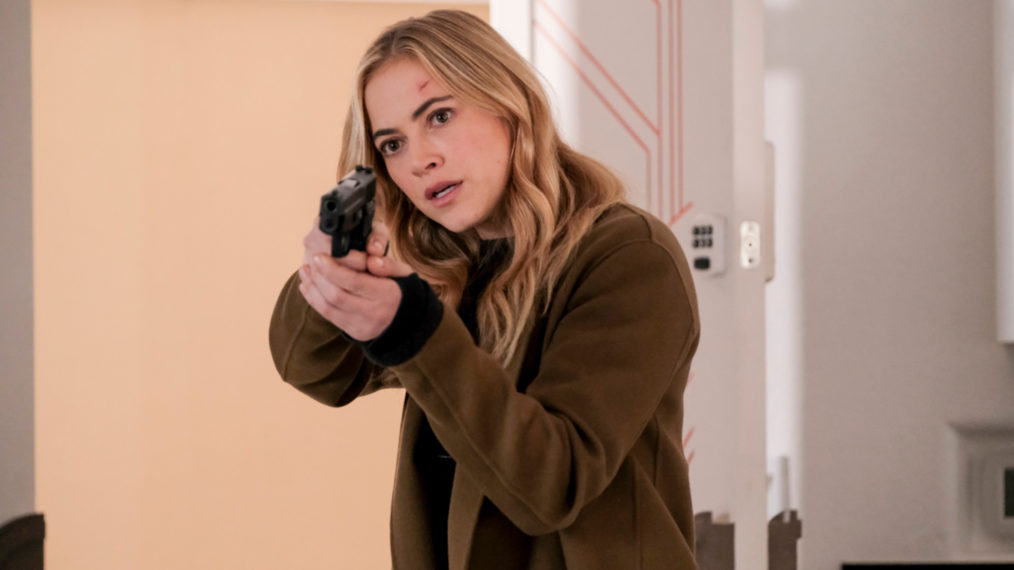#Jordan Klepper on Covering the “Most Consequential Midterms” in His New Special and the Future of ‘The Daily Show’

Table of Contents
Jordan Klepper on Covering the “Most Consequential Midterms” in His New Special and the Future of ‘The Daily Show’
Following the return of former Daily Show host Jon Stewart’s Apple TV+ series The Problem, several clips have caught fire online for the political commentator and comedian’s acute interviewing style. A subdued version of his time on the Comedy Central institution he helped build, Stewart’s calm and unrelenting in his effort to achieve truth and accountability from his subjects — even when they won’t deliver it themselves.
Current Daily Show correspondent Jordan Klepper is all of that, too. His modus operandi is just… different. An “unwilling straight man” — a label Klepper tells The Hollywood Reporter he’d consider using himself — the comedian combines his love of the clarification question (with a sardonic twist) and a man-on-the-street style to expose the ridiculous and sometimes frightening ideas floating around the country. He’s begging questions in the face of clownish denialism but doing so outside the confines of a controlled interview environment, at places like MAGA rallies and even the Jan. 6 insurrection.
That elevates the stakes of his dogged effort to put his finger on the pulse of not just “average” Americans’ feelings, but increasingly, the extreme (and formerly fringe) political ideology that may threaten American democracy. It’s a responsibility Klepper takes seriously, as he both tells THR and is evidenced by his numerous Daily Show specials tackling some of today’s biggest political issues. That includes guns (Jordan Klepper Solves Guns), elections and the transfer of presidential power (Jordan Klepper Fingers the Pulse: Into the MAGAverse) and democracy (Jordan Klepper Fingers the Globe: Hungary for Democracy).
His latest half-hour special, Jordan Klepper Fingers The Midterms: America Unfollows Democracy, and new podcast Jordan Klepper Fingers the Conspiracy are a look at the health of American democracy amid “the most consequential midterms” he says he’s ever lived through. It also comes just shortly after Trevor Noah announced his departure after seven years of helming The Daily Show desk. It’s the second host transition Klepper has been privy to, having gotten his start on the show in 2014 during Stewart’s final year.
Ahead of the Nov. 1 release of his latest special, THR spoke to Klepper about it and the podcast, how political journalists aren’t like Daily Show correspondents and the future of the Comedy Central late-night show following Noah’s departure.
You have a specific style that you consistently deploy for your correspondent work and special. How will Jordan Klepper Fingers The Midterms: America Unfollows Democracy be a continuation of that and maybe a divergence from it?
I think what’s exciting about getting into these specials is we get to look at some bigger topics or some bigger themes and dive a little bit deeper into them. Got to do that with Hungary earlier this year and see how democracy was crumbling overseas and how that reflected what was happening here in America. With these midterms coming up, I think these are the most consequential midterms I’ve ever lived through. Suddenly, you saw that 60 percent of Americans are going to have election deniers on the ballot. And we’re not only electing electors, we’re having an election about elections. So, this is an opportunity for us to be like, ‘Great, let’s cover this movement.’ We’ll do what I do, which is get on the street, talk to the people, see how they feel about things, where they think the country is going. But it’s also an opportunity to dig into stuff I don’t normally get to do with folks like Adam Kinzinger and hear what he has to say. I spent some time with the Oathkeepers down in Arizona who are outside ballot boxes with guns on their hip, watching people, looking for fraud. I’m really worried about what’s happening in these midterms, and I think the title is America Unfollows Democracy because I think we’re at a very dangerous precarious point right now. This special is our attempt to see where those dangers lie.
How does your podcast Jordan Klepper Fingers the Conspiracy expand on that?
I think the special is looking at the midterms and looking at how those might turn out and what dangers there are in the three states of Arizona, Pennsylvania and Michigan. The podcast in and of itself is a chance for me to take a deeper dive into the wilder conspiracies and ideas that I’ve seen on the road over the last many years. Things move really fast when you go to a MAGA rally, and you get things like “Democrats are drinking baby blood” and “JFK Jr. is the vice president of the United States.” You know, fun things like that. (Laughs.) As I talk to people, I get a chance to respond in real time, trying to figure out what their point of view is. This podcast was a chance to be like, let’s slow it down. There’s wild thoughts happening at the rallies that I’m at. Let’s take some of these theories, some of these conspiracies — let me see where they began. Let me see why they live online. What is so sticky about them? Let me talk to experts who have been studying this. Let me talk to people who have been affected by these things so that we can kind of open that up a little bit. For example, I go to these rallies, and I hear them talk about JFK Jr., and it blows my mind. I can’t even really comprehend why JFK Jr. — and not even JFK — is a part of the conversation. So, this podcast is a chance to open that up and try to get a little bit more understanding.
Jon Stewart’s show is back and it’s again sparked people’s desire to see pushback in political coverage, particularly in the face of outright lies and conspiracy. You sort of do the same thing as Jon. I’m curious about what fuels that for you? Is it more of a journalistic sense or a comedic sense?
I do think as a comedian your job is to read the room and the room is on fire right now. So that’s why I’m interacting with all of the chaos that’s happening around us. As a human and as a citizen, you got to push back when you see bullshit, and that’s something Jon Stewart instilled in The Daily Show. It’s a war on bullshit. I’m not a journalist. I’m an improv comedian who’s on The Daily Show. When I go out and talk to people, I take that very seriously. But I wear my biases on my sleeve. I don’t have to wait and listen to a politician, talk through his talking points, and then bite my tongue. I have the ability to push back, and I think that’s what I get to do with these rallies. I don’t want it to come from a point of anger. But it does come from a point of frustration and hope to understand the logical fallacies and arguments that some of these people have.
I think, in some ways, it shouldn’t be, but perhaps it’s a luxury that I get to do that when I see other journalists sitting back. Donald Trump is a great example. One of his great weapons is calling on somebody else and never answering the question, never having to respond to a follow-up. When I get to sit with these people, I get to follow up. I get a push until you get that answer. I think that is incredibly important in this day and age because we are all becoming experts on evading the truth and finding the quickest truth that makes us feel warm and fuzzy inside. But if you can get past the bullshit of validating your own opinions and get to somebody and trying to understand what they actually believe and where their BS is, I think that’s what I’m aiming for when I go out there.
You hear a lot of wild things when you go out there. In the case of the MAGAverse special and Jan. 6, you were caught in one of the wildest things America has ever experienced. How do you think about your own safety while also trying to think about the story?
Well, I will say this: One, I like being there. This conversation is happening all across America right now, so I do have the luxury of being at the location where the conversation is perhaps hottest. I’m lucky to be in that position. That being said, yes, you look at Jan. 6 — I’m there with four security guards having to be aware of an insurrection taking place all around. That’s not a position most comedians find themselves in, but hey, this is how the world is nowadays. I approach those things with a lot of prep and we have a great team, so I feel like I’m going in and at least I’m mentally prepared to deal with some of those wild things. But America is the most creative place on Earth. My lord, there’s a Marvel Universe worth of creative thoughts at every rally I’ve ever been to. (Laughs.) It’s so funny because people will be like, “Oh, you’re just looking for the wildest stuff.” This pond is stocked well. (Laughs.) I walk out in there, and I’m just asking, “What do you think?” and suddenly old ladies in Wisconsin are like, “Well, I think JFK Jr. is the president right now,” and you’re like, “I’m not even asking you about that. We’re talking about Roe v. Wade!” I try to find humor and levity and beauty in the creativity of Americans out on the road and then a little bit of bourbon and stoicism helps it go down.
You’ve been on the show a while and you’ve gotten to work closely with a variety of correspondents. What might you have picked up from them that you use in your own distinct man-on-the-street style?
I’ve gotten to wear a lot of different hats over at The Daily Show. So, some of that, I think, is a reflection of how the timing and comedy has changed over the six-plus years. I arrived, and I’m reading notes that were passed down from Stephen Colbert to all the correspondence about how you sit in a room and conduct an interview. I’m watching a videotape of Sam Bee and John Oliver and how they interact with people. So, right from the get-go, I have this beautiful alumni to learn the process of how you find humor and push people on bullshit. So, that really was integral to learning how to be a correspondent on The Daily Show. I was learning from Jon how to be there in the studio and also out in the field, then as Trevor comes in as well, learning how to have that rapport and also find more authenticity within it. When I started with Jon Stewart, the role of the correspondent was a caricature of what a news person was.
I think, in this day and age, you’re balancing that toolset with also an authenticity of being somebody who is earnestly frustrated with the world around them. That’s an aesthetic Trevor brought into it. It’s also just what happens when you have insurrections taking place on the evening news. Now I find myself inspired getting to work with so many great correspondents. When Roy came on, that was the first piece we did, and to be able then to suddenly bounce off of somebody like him, Desi [Lydic] or be up against Ronny Chang and look so much better than him in comparison. That’s a real benefit, so thank you, Ronny. (Laughs.) I mean, there’s a camaraderie that happens within a correspondent team and you’re able to play off of that energy. Then I go out into the field and the field can be a pretty lonely place, but I’m taking the skill sets that I’ve learned being part of that Daily Show alumni, and then getting to interact with everyday Americans.
Going back to something you previously said, midterms have historically not been treated as important in the same way as the general election. This one feels different. What about The Daily Show — and you — right now makes it really poised to cover that?
I don’t know any other late-night shows that are there at these events as they’re happening. I feel like it’s almost an anthropological examination of what’s happening in this country. You can pass around an article about armed people in Arizona watching ballot boxes, but The Daily Show goes there. I’m with those people. I’m talking to them. That’s what we report — with a sense of humor and satire. I do think I can provide and that The Daily Show can provide what you don’t see with other late-night shows. There’s also the nimbleness that a comedy show has that perhaps a news organization doesn’t cut through with certain traditions that are there for good reasons. But comedy has always been a way to get to the truth faster than other roundabout matters.
Trevor Noah announced that he would be departing the show, which we now know will be in December. How did you take that news?
Yeah, I’m, you know, I was surprised to hear that Trevor was stepping down. But I’ve talked with Trevor before, and this is a really tough, hard job. I think he’s been here for seven incredible years. So, as bummed as I was to hear that he was going to move on, I was ecstatic for him that he can find a little bit of peace and happiness and continue to expand. I don’t know what he’s gonna do other than probably 400 arena shows a year. I mean, he’s an insane person in that he is constantly off doing four other jobs. So, there’s part of me that was just also relieved, that was like, “Leave some other jobs for other people, Trevor, you’ve already been doing so many.” I love Trevor, and it is sad that he’s not gonna be at The Daily Show for that much longer but so much joy for what he’s brought to the show and what he’s going to do.
You’ve worked with two Daily Show hosts now and could be working with a potential third. What are you anticipating during this third transition as somebody who has already made it through two different iterations of the show?
I think watching Trevor come in, there were big shoes to fill. He had to find what his voice was within The Daily Show and also be responsive to what is happening in the world around him. But I think it’s all about finding the way in which you can work with that building and with that show. I think Trevor did that with such candor. I never saw him sweat, which was remarkable from my perspective. Looking forward, I think it’s important The Daily Show understands its place culturally — it has been around for decades now. I feel honored to be a part of it, but I also feel amped up to attack what’s happening next. These midterms, again, are the most consequential. I’m out on the road, and I’m talking to people who are talking about Civil War. We’re talking about voting in secretaries of state, a position most Americans don’t know shit about. We’re going to talk about this in the special because those are the people who are controlling which electors are voting for the president that you may vote for in two and a half years. So, I see the role of The Daily Show becoming only more and more important culturally because we need something that can be responsive to the news, that can speak with authority to the world around it, to have that history with an audience, hopefully, that clarity and that humor that can help us navigate what could be some choppy waters.
Interview edited for length and clarity.
Jordan Klepper Fingers The Midterms: America Unfollows Democracy airs at 11:30 p.m. ET on Nov. 1.
If you liked the article, do not forget to share it with your friends. Follow us on Google News too, click on the star and choose us from your favorites.
For forums sites go to Forum.BuradaBiliyorum.Com
If you want to read more Like this articles, you can visit our Social Media category.




